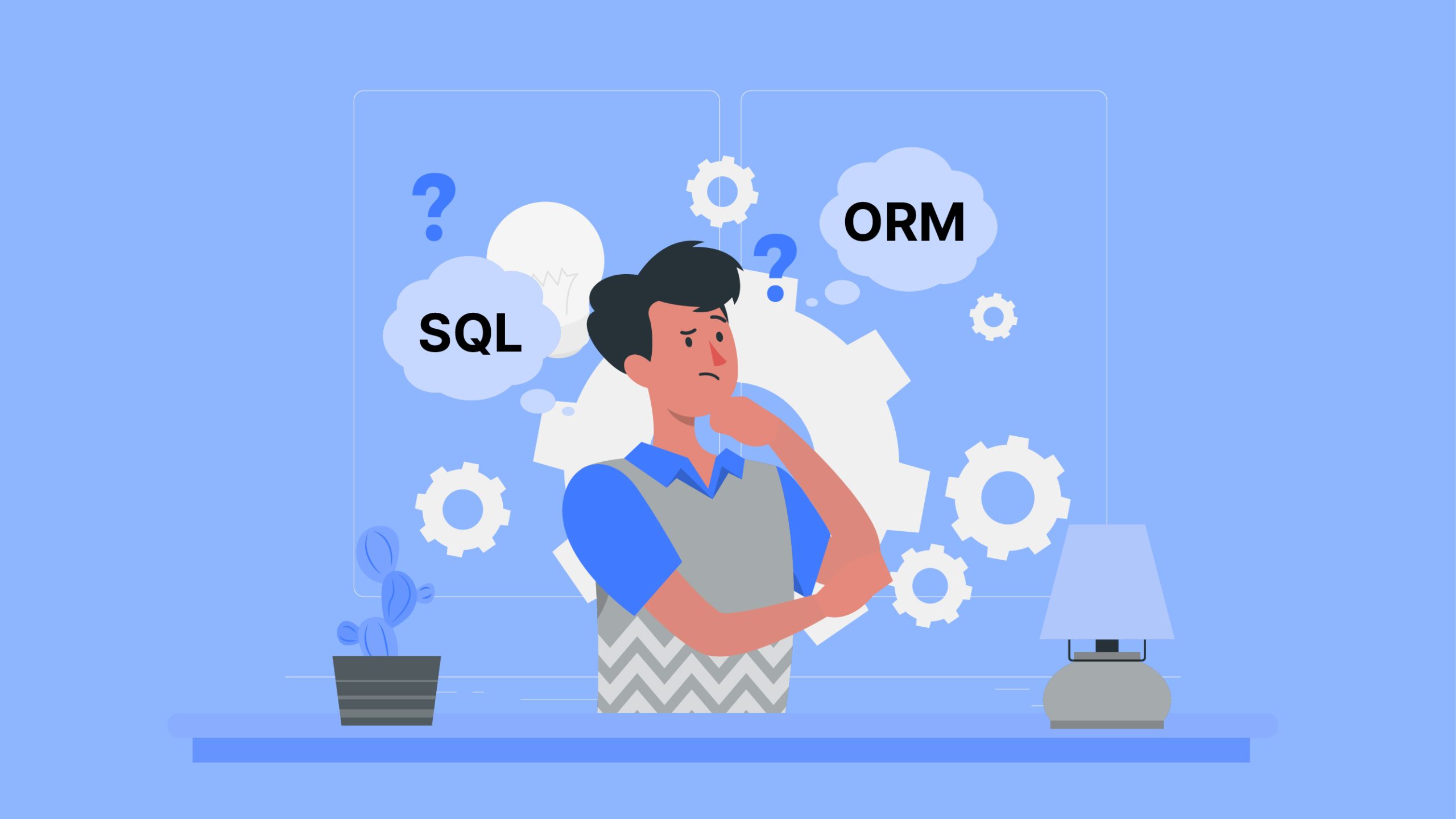Demystifying JOOQ and Controversies of an ORM
 Venktesh Kaviarasan
Venktesh Kaviarasan
This article captures some of learning of the shortcoming of an ORM and where does JOOQ fit in the ecosystem of things. It captures articles and thoughts in the community.
Where Hibernate Outshines
- Hibernate/JPA takes an java object first approach where java objects are modelled.
- Hibernate makes it a breeze when directly working with the object model for simple CRUD ops.
- If writing becomes complex where we have to load 20 objects in memory and then do some operation, Hibernate is the best choice and was designed for this.
- Hibernate has a lot of features like lazy loading, caching, etc. Hibernate has first level and second level caches which can result in optimised querying of
data (https://vladmihalcea.com/jpa-hibernate-first-level-cache/))
Where JOOQ Outshines
- JOOQ puts the database first approach. Databases can outlast application layer.
- JOOQ provides type safe way to write SQL queries and they are checked at compile time itself.
- JOOQ can be easy to use for developers who are comfortable with SQL.
- JOOQ code generation capabilities auto generates models basis the database and they are kept in sync by database management tools like liquibase/flyway.
Hibernate Problems I faced
- Managing composite keys and when the relationships started getting deeper, it was difficult to perform object relational mapping.
- 1-1 relationships gets loaded eagerly because of JPA proxying. Resulting in additional queries, performance hibernate byte code enhancement didn't help either.
- N + 1 query issues are more probable when using hibernate with in-experienced developers, the N+1 query issues can be caught in integrations tests buts it a tedious process for the reviewing developer.
- Partial object querying is not possible directly with the ORM.
- Typical joins used nested loop join type method to fetch data rows from two tables involved. This can be good approach when the dataset size is small
- Hash Joins alleviate this problem by removing the need to perform multiple B-Tree traversals. The hash joins performance is guaranteed when the memory foot print of the loaded in-memory hash table is small enough.
- With that said JPA doesn't have a direct way to partially select objects. We can only specify @Lazy/@Eager resulting in complete object fetching. This can be optimisation pitfall.
JOOQ Advantages
- Use JOOQ for OLAP for reporting/batch-processing.
- Write Queries are going to complex with JOOQ or plain SQL. (Hibernate should help here) Simple select queries and slightly complex read queries are going to result in optimised performance as we are leaving out the ORM's leaky abstraction.
- Type safety in writing SQL queries, unlike JPA where only at runtime we get to know whether the SQL is right.
- Simple DSL, code generation capabilities, type safety and performance are the key advantages of JOOQ.
- Better performance guarantees, as it is just a DSL on top of SQL.
- With that JOOQ was and is not a replacement for Hibernate, it is a complement to Hibernate.
Object Relational Mapping: The Vietnam of Computer Science (Ted Neward)
- Ted Neward draws a parallelisation between the Vietnam war and the object relational mapping.
Object Relational Impedance Mismatch
- Objects and relational databases are constructed differently.
- Objects are typically characterised by the following:
- State - state is akin to data
- Identity - unique identity of object distinct from the state.
- Behaviour - The methods/functions for clients to interact with object
- Encapsulation - hiding internal details, and provide evolutionary capability to objects
- Types/Abstraction/Polymorphism.
- Relational Systems - Describe a form of knowledge storage and retrival based on predicates and truth statements.
*Relational systema are characterized by the following:- Relation - A truth predicate about the world, a statement of facts that provides meaning to a predicate.
- Attribute - An attribute describes a predicate
- Tuple - It is the context to a relation.
- Relation Value - A relation value is a combination of relations along with tuples
- Relation Variable - Stores a set of relation values
Parallilisation with Vietnam War
- Trying to slave objects to fit the relational system is the impedance mismatch, where we ignore one half of the equation. This is synonymous with Kennedy's administration during the Vietnam war where he was not committed to an approach.
- As Westermoreland the war head of the American side during the war quoted (unleashing the full troops to Vietnam). Unleashing the objects fullest capabilities, left with some kind of hybrid object-relational mapping, with some automations of the object-table mapping, dev's can concentrate on the Domain Model. This is where the potential quagmire starts.
Ted Newards Article: https://www.odbms.org/wp-content/uploads/2013/11/031.01-Neward-The-Vietnam-of-Computer-Science-June-2006.pdf
The points of Ted Neward countered by Ward Bell in this article.[https://www.codeproject.com/Articles/20849/ORM-as-Vietnam-of-Computer-Science-A-Response]
References
- Hibernate First Level Cache: [https://vladmihalcea.com/jpa-hibernate-first-level-cache/
- Martin Fowler's ORM Hate: [https://martinfowler.com/bliki/OrmHate.html]
- Reddit Post on Hibernate vs JOOQ [https://www.reddit.com/r/java/comments/4mermo/what_are_your_thoughts_on_hibernate_vs_jooq/]
- Google Groups Discussion by JOOQ Developer: [https://groups.google.com/g/jooq-user/c/gmBf6g6sdQA
- Ted Newards Article on ORM: [https://web.archive.org/web/20220823105749/http://blogs.tedneward.com/post/the-vietnam-of-computer-science/]
Subscribe to my newsletter
Read articles from Venktesh Kaviarasan directly inside your inbox. Subscribe to the newsletter, and don't miss out.
Written by

Venktesh Kaviarasan
Venktesh Kaviarasan
I am a Lead Engineer from a FinTech startup, prior to this worked for companies like Glassdoor and Staples in domain of Employee Experience and Supply Chain. Currently learning Distributed Systems, Databases and Web Applications. My contributions are my learning in my journey to upskill in the above areas.